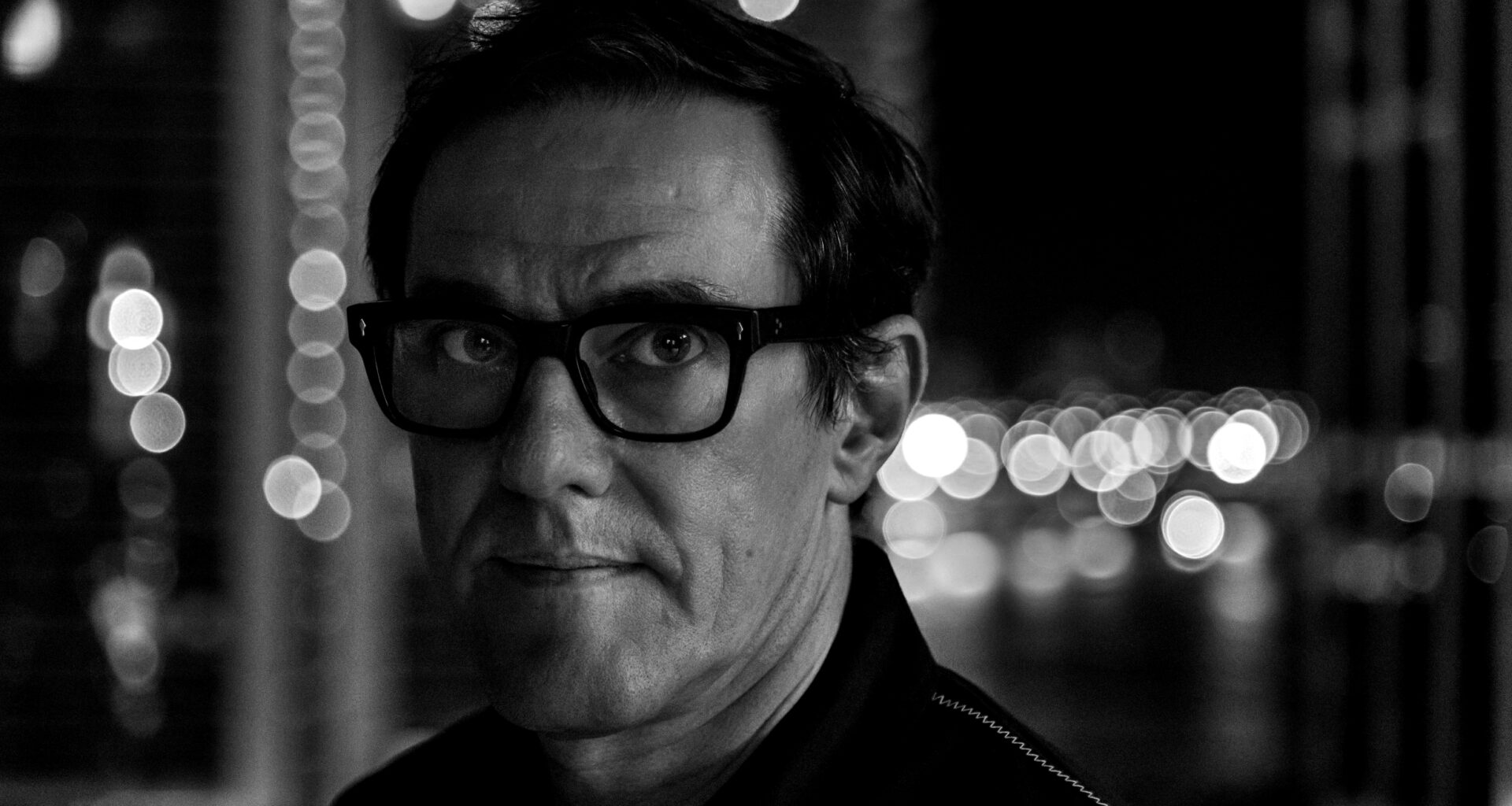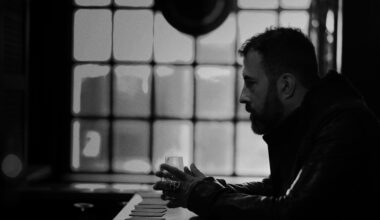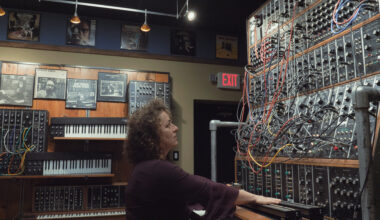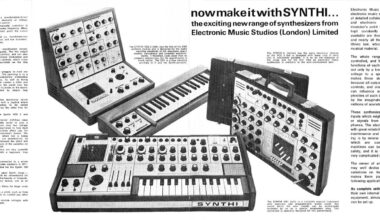In his first volume of memoirs, Stephen Morris tackles growing up in Macclesfield and how he ended up as the drummer in Joy Division. We talk to him about the idea of independence, why it was embraced in 1970s Manchester and how Factory’s version ended up on top
All histories like the Big Bang theory – the idea that a single event triggers a monumental change, after which nothing is ever the same again – and pop culture is no different. In terms of the Factory Records narrative, that event was the release of Buzzcocks’ ‘Spiral Scratch’ EP in January 1977 on their own New Hormones label, which defied all expectations by selling 16,000 copies thus pointing the way forward for Tony Wilson, with Joy Division et al, to shape an independent record label with a singularly radical attitude that created a unique and enduring aesthetic. Cause and effect. Bang.
Except, of course, the reality was far less straightforward. That all “scenes” are atomised, with many overlooked but crucial bit parts as main players, overlapping mini-histories and a cumulative, rather than single explosive effect is something Stephen Morris understands very well.
He agrees that “Buzzcocks definitely were important in the process of demystifying the record-making process” and showed the way not only for Joy Division’s Enigma label (on which they released their debut EP, ‘An Ideal For Living’), but also for Factory. But Morris is keen to point out that “it wasn’t just one big thing, it was lots of tiny little things” that were catalysts for change in Manchester around 1977–78.
“It’s very difficult to explain quite why things happened the way they did,” he admits, “because the atmosphere of the time was completely different; it’s nothing like it is now. The ‘Let’s do the show right here in the barn’ sort of thing – anybody could put on a show. Well, anybody could do anything, that was the big message about punk, but somebody had to do it first.”
In terms of independent record labels, in Manchester it was Rabid who did it first. Launched at the start of 1977, primarily to promote glam punks Slaughter And The Dogs, it ignited a spark in Tony Wilson’s imagination. He “kind of nicked the template that Rabid got going” according to Morris and also spirited away its in-house producer, Martin Hannett.
“Tony used to hang out with Rabid just to see what they were doing,” says Morris. “He had ‘So It Goes’ – this absolutely fantastic, anarchic, music television programme – and was mixing with all these people and so the first thing he did was the Factory nights at the Russell Club. Tony saw Joy Division at Rafters and we ended up playing at the Factory. The next idea was, ‘I’ve got a few bob, let’s make a record’. Initially, it was just to showcase the bands that played at the club. Everybody else did the same sort of thing. It wasn’t that people were keeping the knowledge to themselves or something they were precious about, it was, ‘Yeah, you can do it’. It was meant to be inclusive.”
That recording of Joy Division’s set in May 1978 (released on the EP ‘A Factory Sample’) launched what became a long-term relationship, defining for both parties, but it didn’t seem momentous at the time. A scene’s formlessness is the very thing that fills it with promise, so Morris and his bandmates were just going with the flow, with nothing like a plan to capitalise on the wave of local independent music success. But like their peers, what they did have was unquenchable enthusiasm and energy, which fed back into the local scene and stoked more activity.
“Up to that point the music business seemed something that was quite inaccessible and the independent scene opened it up to everybody,” Morris explains. “Why not just give it a go? What have you got to lose? Nobody was thinking about it in terms of it changing Manchester or even as a reflection of what was going on, it was just, this is good; this is better than the life I would be leading. It was fun – that was the main reason. It was total anarchy,” he laughs, “because nobody really knew what they were doing. And that was fine.
“It was a snowball effect,” he adds. “It’s like sheep, realising they can jump over the gate; once one’s done it then the whole lot will do it. And it did happen very quickly – there were indie records coming out left, right and centre and it was a very vibrant scene. But it wasn’t just Manchester, there were scenes all over the place and every city [in the north] had its own thing going on. It was nothing to do with what people in London were doing.’
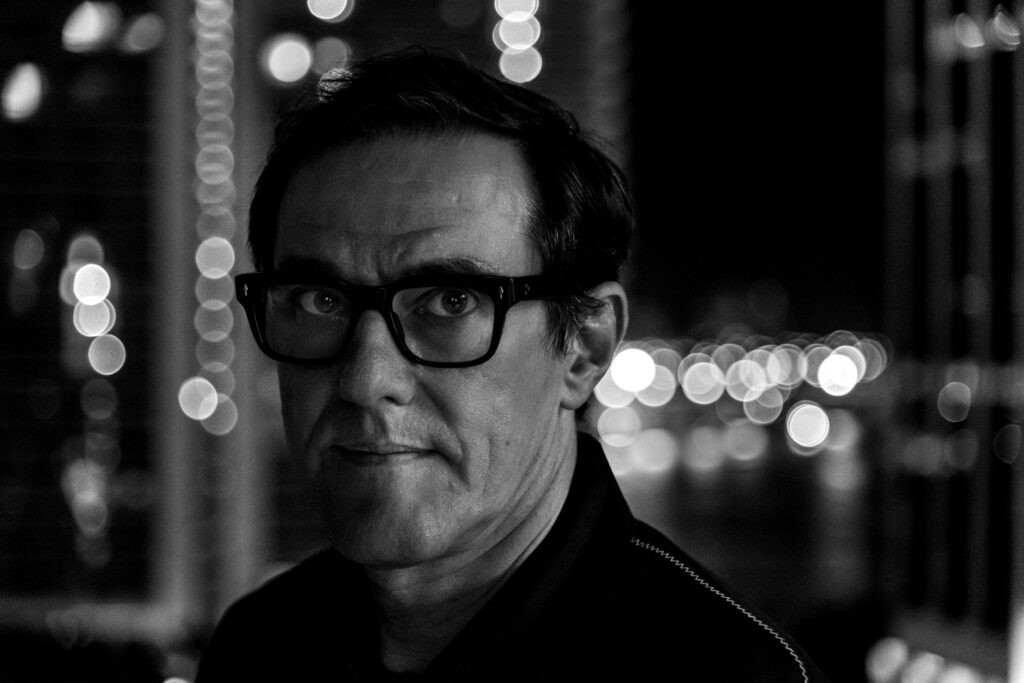
Coupled with fierce individualism, that committed regionalism – turning away from the capital as the centre of the music industry to focus on local enterprise – was a key aspect of Factory’s ethos. To Morris’ mind, 10cc’s decision years before to invest money made from ‘I’m Not In Love’ in the world-class Strawberry Studios, “in Stockport, of all places”, proved that it was entirely possible to keep things local. He agrees it was something like pride. “That said, we did ring up places and try to get gigs in London. But in the end, when you started making records in Manchester and realised you could do it, what was the point?
“The thing that annoyed me as a kid was that The Beatles came from Liverpool but as soon as they made it, they all moved to London. Why? You don’t have to move there, why can’t you do it here? Factory gave you the means to do that and we really, really didn’t want to go to London. We wanted the whole thing to be based in Manchester. Was it pride? I don’t know: it’s just a north-western/ Mancunian thing.”
Tosh Ryan, co-founder of Rabid has suggested that because of rapid de-industrialisation in the north of England in the late 70s/early 80s, subsequent high unemployment and lack of youth opportunity, “different criteria of success” developed, along artistic and counter-cultural lines. Despite the socio-economic blight affecting Manchester, there was a huge wave of energy and creative can do-ism that effected permanent change.
“It was bleak. It was very bleak,” Morris chuckles, darkly. “Music was the only way out and that was the other thing about punk – it gave you something to do and a purpose, in ways that weren’t obvious at the time. It was an escape route, really, not just from the grimness of Manchester but also from what was expected of you in life: get a job, get married, have kids. That was the way life went and then all of a sudden, anybody could do music. Before, the only people who seemed to be able to make a go out of music had gone to bloody art school, knew people who knew people or just made crap, bubblegum records.”
Obviously, this independent music-making game had its problems, not least of all getting the records out there, in the real world. It was all very well going into a studio, then pressing up 1,000 copies of your genius work but if most of them stayed in boxes under your bed, what was the point? “Some of those records are probably worth thousands now,” quips Morris. “There wasn’t the same sort of infrastructure as there is now. Apart from getting your name in the newspapers, which was very difficult, and playing gigs was quite hard, getting your record played on John Peel was the big thing and he was very much a champion of independent labels. Distribution was really the first problem for everybody. In our case, Rabid took some of the first EP and Rough Trade, who were just starting out took some and that was the beginning of a network that began to develop between all the independents and evolved into some kind of distribution.”
As to whether the Manchester scene at the time was generally more supportive than competitive, Morris recalls, “it was absolutely a mixture of both. There’s this Manchester thing where you call people [out] but they’re your best mates, really. The spirit of the thing was being resolutely independent and you can’t be independent if everybody’s all part of the same thing. Bands called each other all the time but it’s competition, isn’t it? You think you’re the best band in the world and there’s no point in being in a band if it’s not the best one in the world and every other band is rubbish. That’s what drives you.” He laughs: “We were driven but if you’d met us, we would have seemed like the least driven individuals you’d ever come across. But we were! And everybody was; everyone had this kind of unspoken enthusiasm. It’s very hard to describe.”
It’s striking that the potentially insurmountable stumbling block of lack of distribution at the time didn’t deter anyone from releasing independent records. Self-belief was widespread and strong. To just do it, regardless, was the spirit.
“That was exactly the thought process; you didn’t think too far ahead. It was easy to sit in your bedroom and just dream about stuff but the kick in the pants was that everybody else was bleeding doing it, so I’d better do it. There was no business plan [with Joy Division], it was just doing one thing after another and you were just carried along by the fact that everyone shared the same enthusiasm for music.
“Even though there was rivalry between the bands, everyone felt the same and thought that music was the best thing in the world. It was a way of getting somewhere, even though you might not know where you’d end up. It was taking you towards what you wanted to do – and away from what you didn’t want to do.”
This creative spontaneity and a kind of idealism that bordered on the reckless seem to have been intrinsic to Factory’s MO, which rested on Tony Wilson’s initial interest, revealed in 1983 to Gillian Gilbert, in conducting “experiments – laboratory experiments – in popular art” with bands like Joy Division, although he admitted the reasoning came after the fact. He was, like everybody else, just doing stuff because he wanted to. When asked about Wilson’s idiosyncratic vision for Factory, Morris coughs slightly.
“Erm, vision… well. It was just the right place at the right time, with the right people. Tony was a great catalyst and he drew people to him because he was just that kind of person. He was on television. And he was eminently likeable and he knew people, people like Pete Saville – without him, Factory could have been totally different – and Martin, who was sort of seduced away from Rabid, Rob [Gretton] and also Alan Erasmus, who’s very much underplayed. But yes, there were certain criteria: we didn’t want to make records that looked like anybody else’s records. They were to be more… artistic.
“A lot of the indie labels did reflect that DIY thing, with crappy Xerox sleeves but Factory was, well, we aren’t going to do that. We’re going to do something that’s classically good. We were going to make things that were meant to last. One of the things about indie early on was that it was quite disposable – play a record for just a couple of weeks and then throw it away. But we were trying to do something that was a bit deeper than that. But it was still punk because it was about doing the opposite of what you were supposed to be doing. ‘What? You’re putting out an album and there’s no picture of the band on the sleeve? And it’s not even got the title of the record on the sleeve? That’s never going to sell.’”
Wilson famously said the album in question, ‘Unknown Pleasures’, was what turned Factory into “a true business” and Morris readily acknowledges as much. “Nothing was the same for Factory after ‘Unknown Pleasures’. It’s a great record but when we did it, we had no idea. We’d never seen anything like it before. The design wasn’t anything that had been pushed on us but when you see something that is actually different, you think, ah, yeah. I wonder if anybody else is going to like this? But luckily, we were right. And it was that record that Factory was built on.”
Morris admits he can’t remember the very first time he met Wilson because “you felt you already knew him because he was on the telly all the time. It’s funny because even though you liked what he was doing, a bit of you thought, oh, you’re a bit too cocky, a bit too big for your boots. Everything was ‘darling’ and ‘oh, fabulous,’” he laughs. “I remember Gillian’s mother, when we’d been on Factory for a bit and we introduced her: ‘Here you are, Flo, this is Tony.’ She’d been in the room watching him for a bit and she said, ‘Hello, Tony. I’ve seen you on the telly a lot and the thing is, a lot of people don’t like you and I can see why now. But I think you’re alright.’ But he’d kind of play up to that. It’s hard to verbalise, but I think Tony was doing it to get a bit of a reaction. You couldn’t really not like him.”
Since Joy Division in their early days had learned a lot from the experience of their Manchester peers and often benefitted from serendipitous turns of events, later on, as New Order, they started paying the benefit forward. From 1982, under the Be Music umbrella, all four produced records for other Factory artists with far less experience (and money) than them. It was an idea germinated in 1979, when Section 25 fans Ian Curtis and Rob Gretton oversaw some of their recording sessions at Cargo Studios and co-produced ‘Girls Don’t Count’.
“When new bands came along we’d go in the studio and help them make a record,” Morris explains. “It was something we wanted to do because that was what we needed when we started. We had equipment they didn’t have access to, so we’d just go in and show them how it worked, do a bit of programming for them and stuff like that. It was about investing your time to help other people on the label and it was a collective thing.”
The attitude underpinning that creative largesse has largely been lost in the Factory Records story, with its triumphant highs and tragic lows, energy, excess, startling naivety and larger-than-life dramatis personae. All the players will have their take on what it stood for and what its legacy is, but Morris says simply, “It changed everything in Manchester, in various ways. The Haçienda completely transformed the way clubs worked and the way nightlife in Manchester was. And that was very Factory because it was just a complete disaster from the word go! But it was an idea: ‘we’ve got to do this club, for Manchester’.
“We were very sincere about it all,” he declares, of Factory’s rampant adventurism, “but we weren’t po-faced. There was a lot of fun. But it was done with integrity – I think that’s the word.”
Stephen Morris’ ‘Record Play Pause’ is published by Constable
